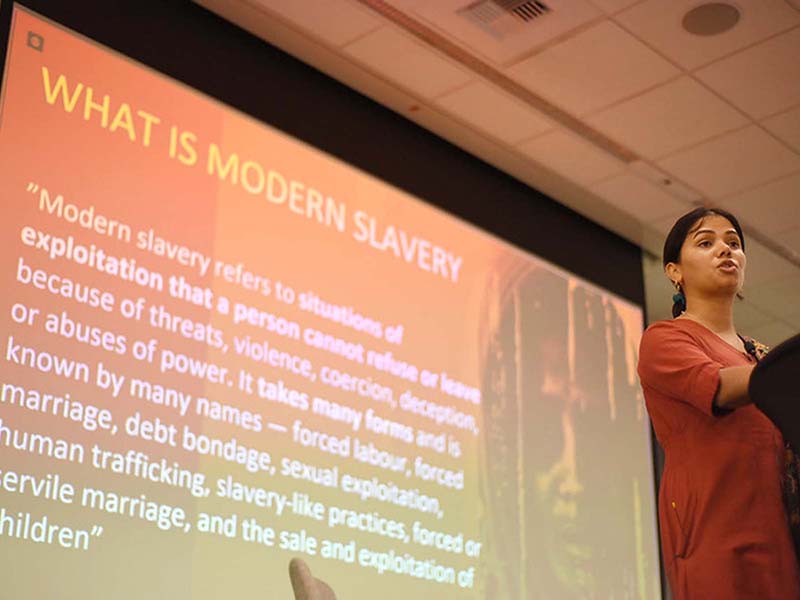
Photo by Thomas Ribaud on Unsplash
Authors
The coronavirus pandemic has exacerbated the plight of many people around the world who were already living and working in slavery-like conditions and has made many more susceptible to such exploitation. For companies with extensive operations and supply chains, the risk of human trafficking taking place within their value chain is on the rise, an issue the Global Business Coalition Against Human Trafficking (GBCAT) and many other anti-trafficking initiatives have elevated to the business community throughout the year. In response, many organizations are partnering with the private sector to help prevent, identify, mitigate, and address human trafficking in business operations and supply chains around the world.
However, companies have an additional, powerful lever they can further deploy to aid survivors of human trafficking in their recovery: employment. As employers, companies are uniquely positioned to offer quality training and stable incomes. Vocational training and good jobs enable survivors to better build the skills and resources they need to achieve financial security and long-term safety. Doing so also helps survivors to overcome socioeconomic vulnerabilities, reducing the likelihood that they or their dependents will be exploited in the future.
GBCAT is launching a new resource, A Guide for Business on Empowerment and Employment of Survivors of Human Trafficking, to inform companies on how they can support the long-term recovery of survivors of human trafficking. This guide describes the needs, experiences, and effects of human trafficking on survivors, actions business can take to empower and employ survivors, and explains the types of organizations that companies can look to for partnership support, including real-world case examples. For businesses interested in engaging on the topic, the guide indicates criteria to look for when assessing survivor-support organizations for partnership, outlines the elements of a strong survivor employment approach, and key considerations for business when deciding whether and how to intentionally integrate survivors into their workforce.
The Guide points to two opportunities for business to proactively support survivors of human trafficking on their journey towards recovery:
- Support the organizations that aid survivors in their long-term recovery. Support can be offered pro bono or through financial means or partnership. The guide describes the three types of organizations which support survivors, recognizing that some organizations play multiple roles.
- Immediate Needs Providers (INP): Entities that provide basic and urgent needs to survivors, such as medical care, shelter, food, and trauma counseling, helping survivors to heal so that they are successful in continuing lives on their own terms.
- Vocational Training Organizations (VTO): Entities which equip survivors with the technical and professional development skills that enable them to find safe, sustainable, and well-paying jobs.
- Social Enterprises and Businesses: Entities which offer safe and long-term employment, paving the way for survivors’ financial well-being, work experience, and transferrable skills.
- Employ survivors of human trafficking within your business and/or the business of a trusted partner. In partnership with local INPs and VTOs, businesses can provide ready and qualified survivors with safe and stable jobs.
Businesses that have programs to address human trafficking risks, particularly in geographies where the prevalence is high, can demonstrate that their efforts to support the empowerment and employment of survivors are helping to prevent individuals and their dependents from being exploited or re-exploited. Empowering survivors and the local organizations that support them also enables businesses to improve the socioeconomic development of the communities in which they operate, thereby benefiting all community members, including, most importantly, survivors and their families.
Businesses looking to learn more about supporting survivors of human trafficking can download the free guide here and reach out to the team to learn more.
The Global Business Coalition Against Human Trafficking (GBCAT) is a business-led initiative committed to preventing and reducing the incidence of human trafficking and other forms of slavery in business operations and global supply chains and supporting survivors of exploitation. See www.gbcat.org for more information.
BSR’s latest sustainability insights and events straight to your inbox.
Topics
Let’s talk about how BSR can help you to transform your business and achieve your sustainability goals.







